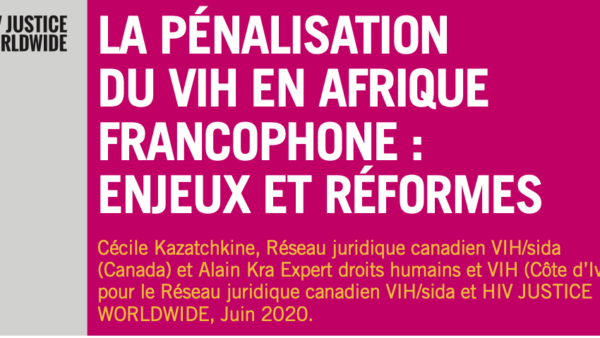Overview
Cameroon has no HIV-specific criminal law, but the Penal Code has a provision regarding the transmission of communicable and dangerous diseases which has been used to prosecute cases of alleged HIV transmission.
Section 260 states that a person whose conduct facilitates the transmission of a contagious and dangerous disease is liable to a prison sentence ranging from 3 months to 3 years. The legislation does not specify whether intention to transmit or to cause harm is required, and disclosure before the act and consent from the HIV-negative partner are also not addressed.
There have been 2 reported cases in Cameroon. The first prosecution was reported in 2010 when a man was prosecuted for not disclosing his HIV-positive status in a case of alleged HIV transmission. He was sentenced to 15 months in jail under section 260. A second case of alleged HIV transmission was dismissed when the accused was found to be HIV-negative.
An HIV-specific bill with criminal provisions for HIV transmission was advanced in 2008 but subsequently rejected following strong representation from local organisations advocating against it.
Laws
Criminal Code
Section 260 – Transmissible diseases
(1) is punished by imprisonment of three months to three years, any person who, by his conduct, facilitates the transmission of a communicable and dangerous disease.
Acknowledgements
Report presenting the results of a survey on HIV criminalization in African countries where French is spoken (hereinafter "Francophone Africa"), conducted from May to September 2017.
Authors: Stéphanie Claivaz-Loranger & Cécile Kazatchkine for the Canadian HIV Legal Network and HIV JUSTICE WORLDWIDE
HIV Justice Network's Positive Destinations
Visit the Cameroon page on Positive Destinations for information on regulations that restrict entry, stay, and residency based on HIV-positive status, as well as access to HIV treatment for non-nationals.
